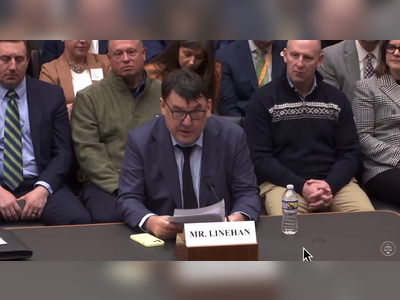IMF Warns of Global Trade Threat from Trump’s Economic Policies
Potential Protectionism Could Disrupt Markets and Reduce Investment, Says IMF Report
The International Monetary Fund (IMF) has raised significant concerns about the potential global ramifications of economic policies proposed by the elected U.S. President, Donald Trump.
A recent report highlights that the protectionist measures, particularly tariffs, advocated during Trump's candidacy, could pose major threats to both global trade and the American economy.
The report points out that while short-term economic strategies such as tariffs, tax reductions, and deregulations might invigorate the U.S. economy temporarily, these measures may also lead to long-term negative effects.
The IMF warns that such policies could exert inflationary pressures, potentially leading to an economic downturn.
The report suggests that these developments could weaken the status of U.S. Treasury bonds as a global safe-haven asset, potentially affecting international financial markets, according to a report by the BBC.
Experts emphasize that the implications of Trump’s economic policies represent substantial risks in global economic forecasts.
They recall Trump’s previous administration, during which the U.S. engaged in a trade war with China and imposed protective tariffs on EU goods.
Throughout his campaign, Trump also threatened harsh tariffs on countries such as China, Mexico, and Canada, and suggested up to 100% tariffs if the BRICS nations develop a currency to rival the U.S. dollar.
According to the IMF, if excessive deregulation of business bureaucracy occurs, it could lead to depreciation of the U.S. dollar, subsequently resulting in capital outflow from emerging markets, thereby negatively influencing global growth.
Additionally, Trump’s promises to deport large numbers of illegal immigrants could lead to a sustained reduction in potential output and an increase in inflation.
The IMF predicts global growth rates of 3.3% for both 2025 and 2026, slightly below the historical average of 3.7%.
These economic outlooks and potential policy implementations remain a focal point of global economic analysis, as the international community assesses the long-term impact of U.S. policy directions.
A recent report highlights that the protectionist measures, particularly tariffs, advocated during Trump's candidacy, could pose major threats to both global trade and the American economy.
The report points out that while short-term economic strategies such as tariffs, tax reductions, and deregulations might invigorate the U.S. economy temporarily, these measures may also lead to long-term negative effects.
The IMF warns that such policies could exert inflationary pressures, potentially leading to an economic downturn.
The report suggests that these developments could weaken the status of U.S. Treasury bonds as a global safe-haven asset, potentially affecting international financial markets, according to a report by the BBC.
Experts emphasize that the implications of Trump’s economic policies represent substantial risks in global economic forecasts.
They recall Trump’s previous administration, during which the U.S. engaged in a trade war with China and imposed protective tariffs on EU goods.
Throughout his campaign, Trump also threatened harsh tariffs on countries such as China, Mexico, and Canada, and suggested up to 100% tariffs if the BRICS nations develop a currency to rival the U.S. dollar.
According to the IMF, if excessive deregulation of business bureaucracy occurs, it could lead to depreciation of the U.S. dollar, subsequently resulting in capital outflow from emerging markets, thereby negatively influencing global growth.
Additionally, Trump’s promises to deport large numbers of illegal immigrants could lead to a sustained reduction in potential output and an increase in inflation.
The IMF predicts global growth rates of 3.3% for both 2025 and 2026, slightly below the historical average of 3.7%.
These economic outlooks and potential policy implementations remain a focal point of global economic analysis, as the international community assesses the long-term impact of U.S. policy directions.
AI Disclaimer: An advanced artificial intelligence (AI) system generated the content of this page on its own. This innovative technology conducts extensive research from a variety of reliable sources, performs rigorous fact-checking and verification, cleans up and balances biased or manipulated content, and presents a minimal factual summary that is just enough yet essential for you to function as an informed and educated citizen. Please keep in mind, however, that this system is an evolving technology, and as a result, the article may contain accidental inaccuracies or errors. We urge you to help us improve our site by reporting any inaccuracies you find using the "Contact Us" link at the bottom of this page. Your helpful feedback helps us improve our system and deliver more precise content. When you find an article of interest here, please look for the full and extensive coverage of this topic in traditional news sources, as they are written by professional journalists that we try to support, not replace. We appreciate your understanding and assistance.











